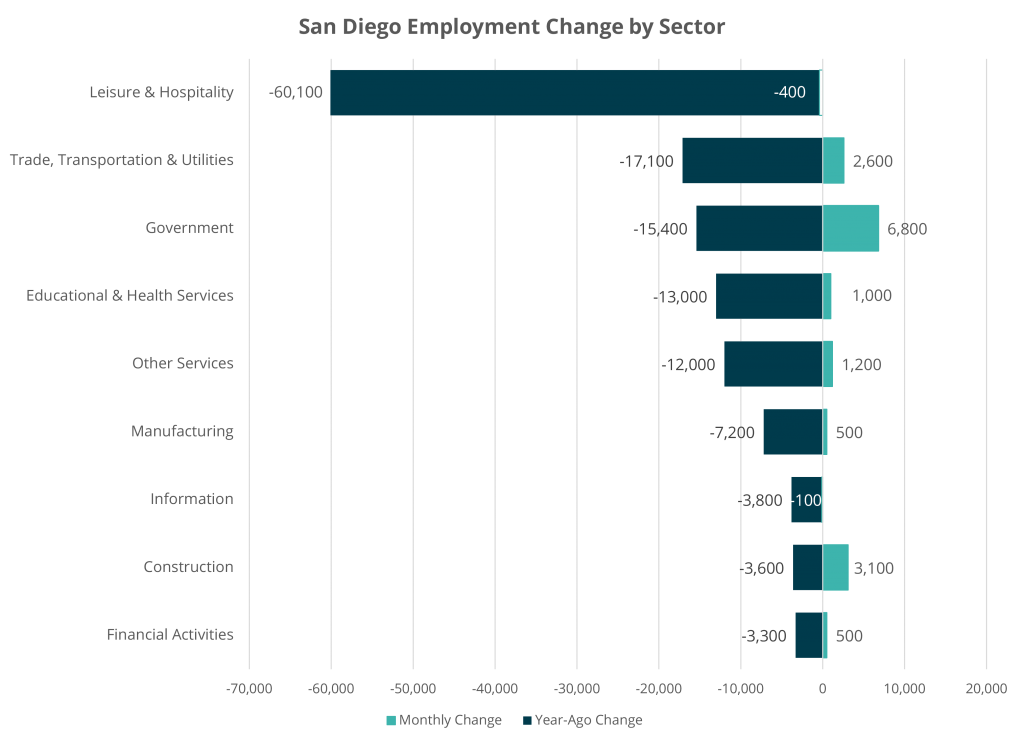Every week, ‘Good News of the Week’ features a curation of positive headlines from San Diego, delivered straight to your inbox. A blend of aggregated stories from San Diego’s most trusted news sources and original EDC-created content, GNOTW provides a comprehensive recap of the region’s best stories from the past week.
For the week of September 25, 2020, here’s what we’re reading:
- Illumina acquires GRAIL for $7.1B to scale early cancer detection
- San Diego groups create $1.3M fund for Black community investments
- Tech Coast Angels launches $4M annual fund for early stage startups
- Six things you didn’t know were #MadeInSD
- Advancing San Diego Intern Spotlight: Anna Kelley, Tourmaline Wireless
- Padres Development Team wins East Village Quarter redevelopment project
- San Diego Legion to open season in March 2021
- GoFundMe continues to hire, expand its San Diego presence
- Libra Therapeutics raises $29M to target ALS
…and here are the events we’re (virtually) attending:
- October 1 – San Diego Regional EDC, CMTC
Manufacturing Day 2020 - September 29 – October 8 – San Diego North EDC, East County EDC, Tech San Diego
Regional Manufacturing Events - October 6-10 – Tijuana Innovadora
Tijuana es el Futuro - October 9 – San Diego CCIM, ft. EDC’s Research Director
30th Annual Apartment Perspective: A Pandemic…and Beyond - November 17 – San Diego Regional EDC, San Diego Grantmakers
Build Better: A Bold Virtual Summit to Reimagine Our Region’s Future
San Diego’s economic recovery must be inclusive.
Every economic recovery the U.S. has experienced has increased systemic poverty & widened inequalities in Black & Latino communities. This time, we’re committed to getting the recovery right. Learn more from EDC board chair Julian Parra. Read More.
San Diego Science & the Global Pandemic
In August, EDC’s San Diego: Life. Changing. wrapped up a series of virtual events highlighting the innovation economy and spirit of collaboration that exist in San Diego. If you weren’t able to tune in, you can catch the recap on our blog. Read More.
San Diego business resources:
Amidst everything happening in the world, we need a reminder that there’s plenty of ‘Good News’ to go around in San Diego. We have also compiled additional resources for businesses and individuals seeking additional guidance.
For businesses:
- Find information at EDC’s COVID-19 page
- Find North County information at Innovate78’s COVID-19 page
- Apply for disaster loan assistance
- Access San Diego Workforce Partnership’s updates for businesses
- Pivot operations to produce PPE, sanitizer, & more
- Find additional guidance from the CDC
- Apply for San Diego County’s Small Business Stimulus Program
- Employers with more than 100 employees: enroll in CalSavers by September 30, 2020.
For individuals:
- See which San Diego companies are still hiring
- Access San Diego Workforce Partnership’s updates for individuals
- Donate to the COVID-19 Community Response Fund
- Find additional guidance from the CDC
Be in the know – sign up below to receive future editions of GNOTW.
Want to submit your event or news update to our weekly newsletter? Contact us for more information.

Heather Dewis
Sr. Manager, Marketing Communications
 In this feature, we sat down with Anna Kelley, ASD intern at
In this feature, we sat down with Anna Kelley, ASD intern at 
